From the Smokies to the Rockies, and the Everglades to the highest point in Maine—and everywhere in between—the United States is full of world-class hikes. Whether you’re a hardcore peak bagger, out for an ambitious day hike, or are obsessed with the panoramic views for your Instagram feed, there’s always something thrilling to lace your hiking boots up for. Here, we tapped RootsRated editors for intel on some of the best hikes in the United States. Use them as inspiration for your next outing—or as a reason to plan a trip.
Teton Crest Trail, Wyoming
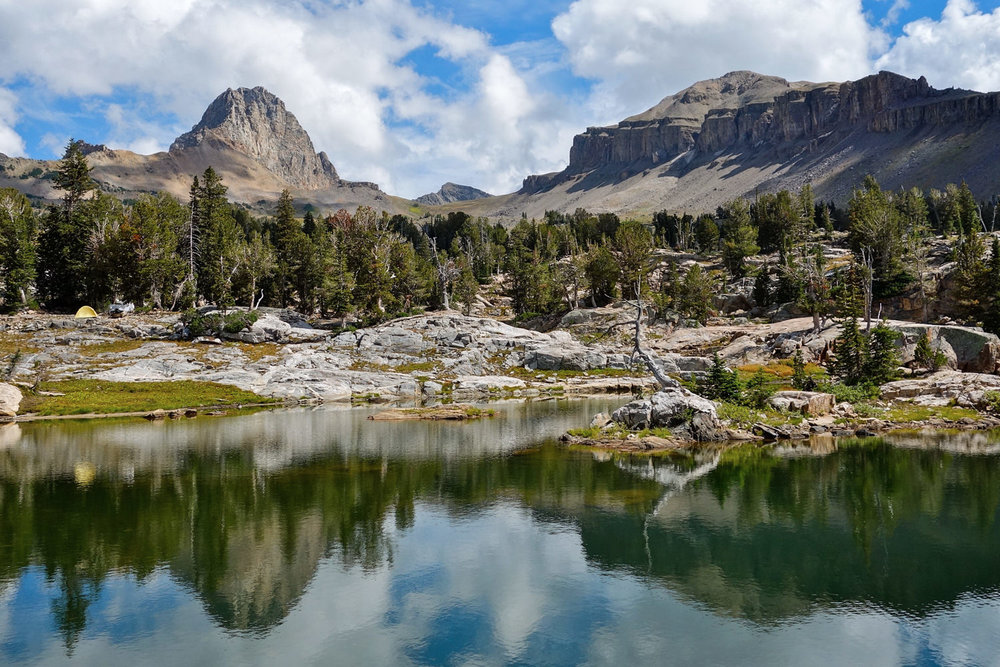
There are a lot of really great hikes on this list, but Wyoming’s Teton Crest Trail might just take the cake as being the most epic. For 35-45 miles (depending on your route), this slender singletrack path cuts a dwarfed, serpentine figure as it slices through the heart of one of America’s most stunning mountain ranges, linking together its very best features along the way. Over the course of two to five days, hikers will pass through wildflower-filled meadows, over airy mountain passes, past glacially-fed tarns, and across expansive basins that swallow up hikers and spit them out as tiny, inconsequential specks against the jagged backdrop of the Tetons. In short, this trail will skew your perception of what constitutes a bucket-list worthy hike. Pro tip: Permits are hard to come by, but because the trail weaves in and out of national parklands and national forestlands, if you camp in national forest designated areas, obtaining a permit isn’t necessary.
Roan Mountain, Tennessee
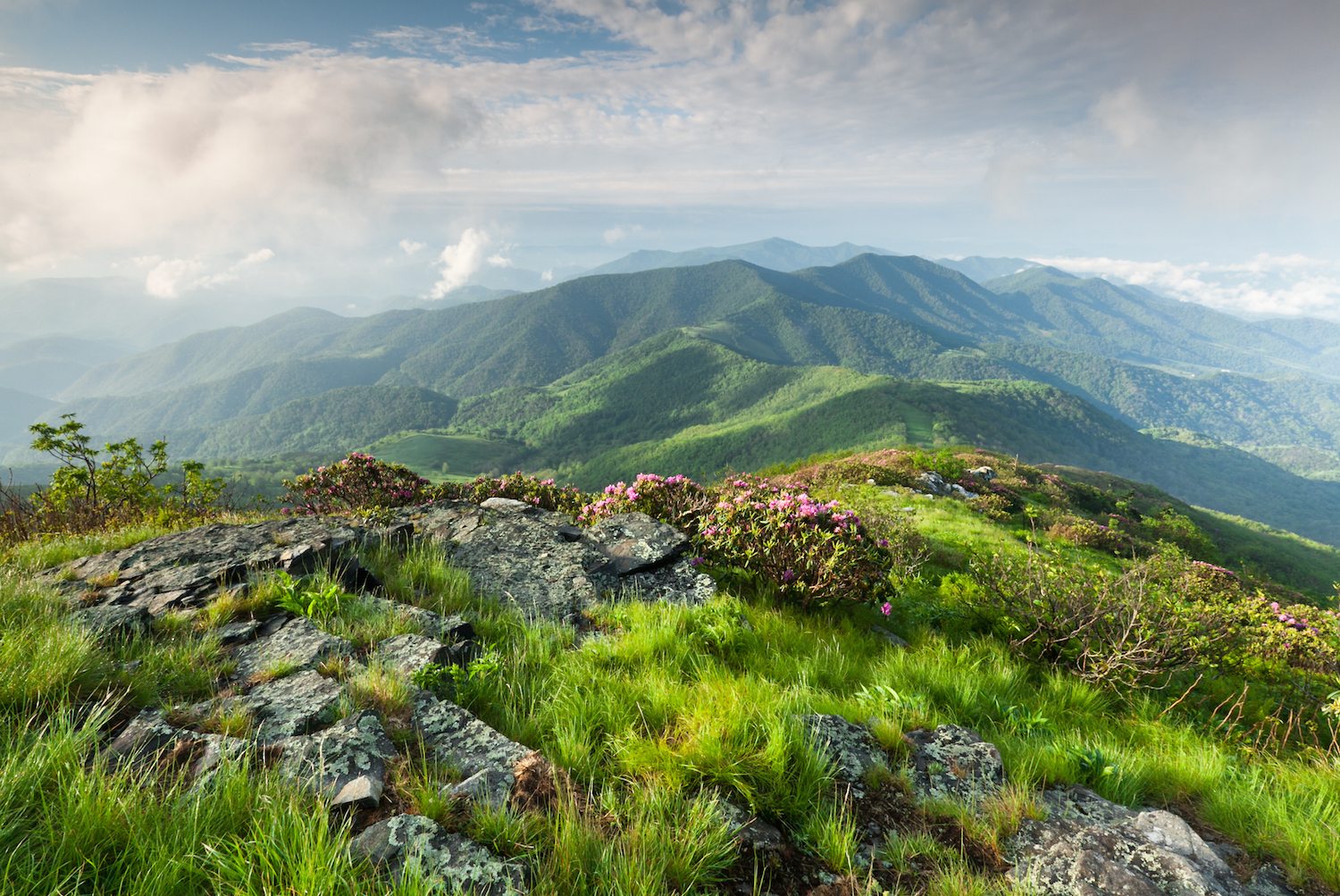
Ask any Southeastern backpacker what the best overnight trek in the region is, and the majority will tell you: the 14-mile traverse of East Tennessee’s Roan Mountain Highlands via the Appalachian Trail is a true standout. Not only is it home to one of the most unique shelters on the entire A.T. (the Overmountain Shelter, better known as "the barn" because it’s, well, a two-story barn), but it also offers up some of the best grassy “bald” hiking in America. Think of it almost like the Southeast’s version of ridgeline hiking: You’re above the trees, surrounded by a sea of billowing grasses in the foreground and a sea of bluish-gray mountains sprawling into every direction in the background, with nothing in the way to obstruct these views. The only downside? Cameras rarely do Roan justice.
Buckskin Gulch, Utah

In a region as labyrinthine and loaded with slot canyons as Southern Utah, it’s difficult to say that Buckskin Gulch is the definitive best slot canyon hike in the region. But it’s certainly the longest and the deepest … and, yeah, probably the best, too. For 13 miles, these narrows snake through a mazy tunnel of towering red rock walls, often no more than a wingspan’s width apart and so tall that they block out sunlight. Some hikers choose to link up with nearby Paria Canyon for an overnight 20-mile trip, but for day hikers, it’s just as rewarding to park at the Wire Pass Trailhead and embark on an out-and-back distance of your choosing. The important things to remember with this hike are largely water-related: First, flash floods are a very real threat, so be sure to check the forecast and plan accordingly. Second, bring more water than you want to carry; the dehydration creeps up quick in the desert.
Mount Katahdin, Maine
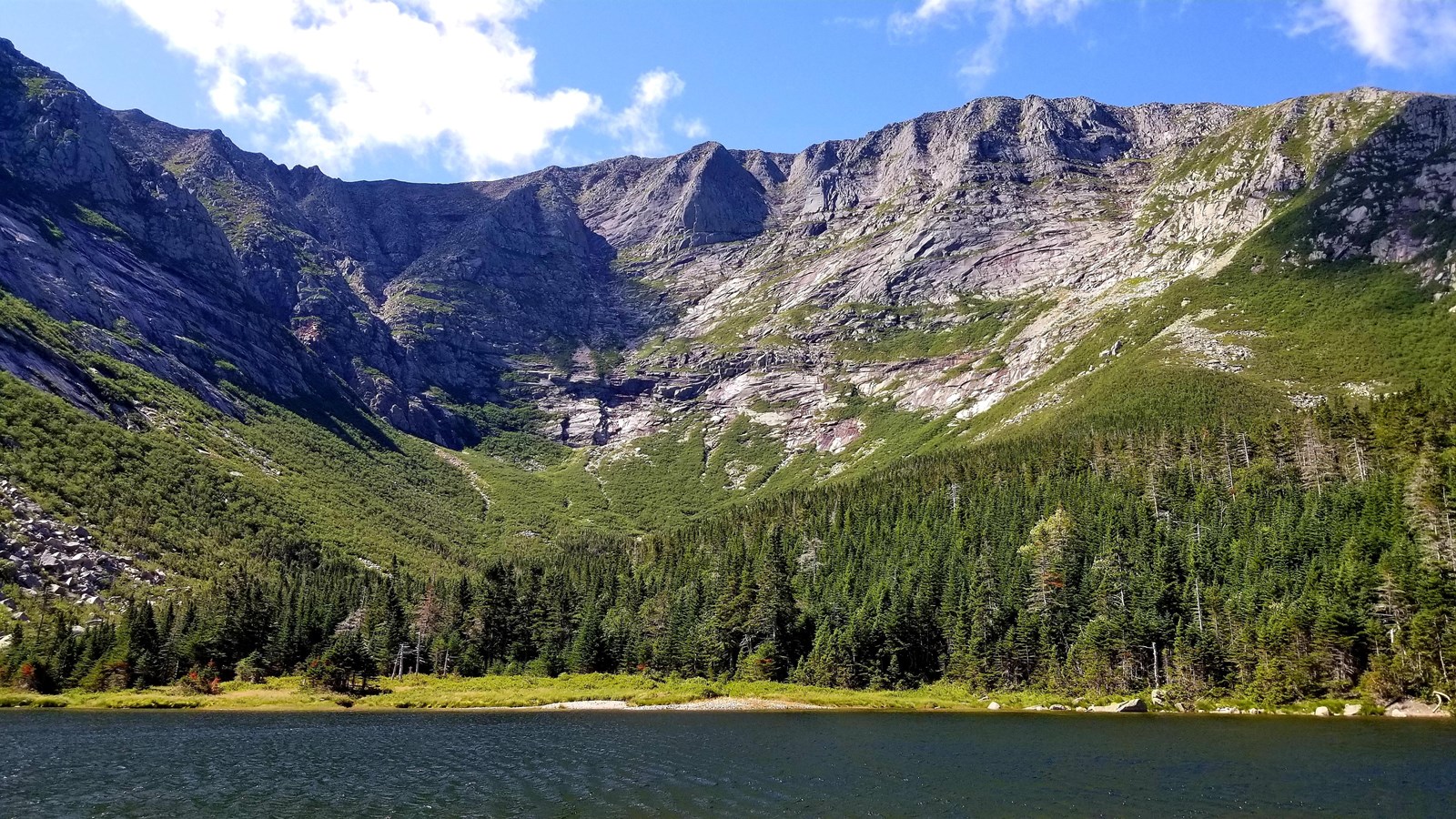
The tallest mountain in Maine and the North Star, northern terminus of the famed Appalachian Trail, Mount Katahdin is truly legendary. It juts upward out of the sprawling expanse of lakes, ponds, and deep woods that define Baxter State Park and towers over the land with a commanding presence. The most iconic way to reach the summit is via the vertiginous spine of the 1-mile Knife’s Edge Trail. Along its impossibly narrow and serrated saddle, hikers scramble from Pamola Peak across Chimney Peak to South Peak and finally to the 5,267-foot summit of Katahdin. Once the (likely fog-shrouded) summit photos have been snapped, a roughly 5-mile descent via the Appalachian Trail will take hikers back to the Katahdin Stream Campground trailhead 4,100 feet below.
Grayson Highlands, Virginia

In a word, the Grayson Highlands of Virginia are breathtaking. In 19 words, they are an almost make-believe land of high mountain meadows, 5,000-foot peaks, thick rhododendron tunnels, and mystical wild ponies. Like most state parks, there’s a large variety of activities to pick from (camping, bouldering, fishing, and horseback riding), but arguably the best way to get a comprehensive taste of the park’s character in a condensed snapshot is to hike the 8.5-mile out-and-back to the summit of Virginia’s highest point: Mount Rogers. The route starts out from the Massie Gap parking area along the Rhododendron Trail. It links with the Appalachian Trail, traveling through grassy pastures sprinkled with boulder outcroppings, and then eventually connects to the Mount Rogers Spur Trail, which twists through a lush, mossy forest to the summit.
Clouds Rest, California
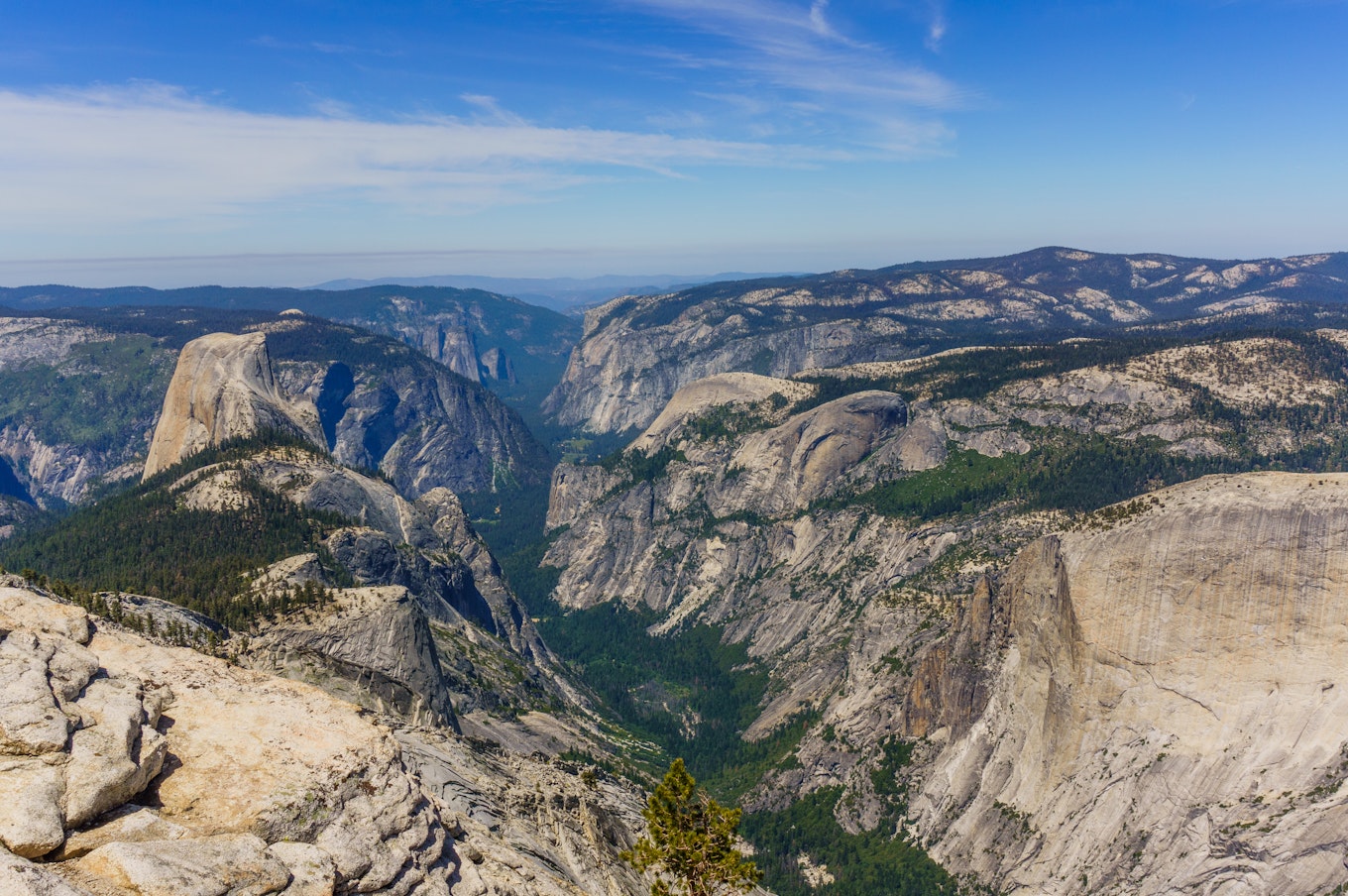
The 14.2-mile round-trip hike to the Clouds Rest summit offers an exceptional taste of what Yosemite National Park is all about. As you’re standing atop its 9,926-foot perch, high above Yosemite Valley from a less-witnessed vantage point than the famous Half Dome buttress, with a giant sea of granite and coniferous pines and sequoias below, it’s hard to feel anything but utter awe and respect for your surroundings. The trailhead is located in the northeast corner of the park. From here, it’s a 7-mile mostly uphill trek whose elevation chart vaguely resembles a healthy year in the stock market—a few spikes up steep ridges here, a few dips into gullies there, but with a pretty consistent uphill hockey stick growth toward the summit. What the chart won’t illustrate, however, are all the glorious intangibles along the way—babbling snowmelt streams, sequoias so stout you’d need a group of five to fully hug them, ever-expanding panoramas as you ascend, the tranquillity at the summit, and of course, the icy plunge in Tenaya Lake as a refreshing reward once you return to the trailhead.
Wheeler Peak, New Mexico
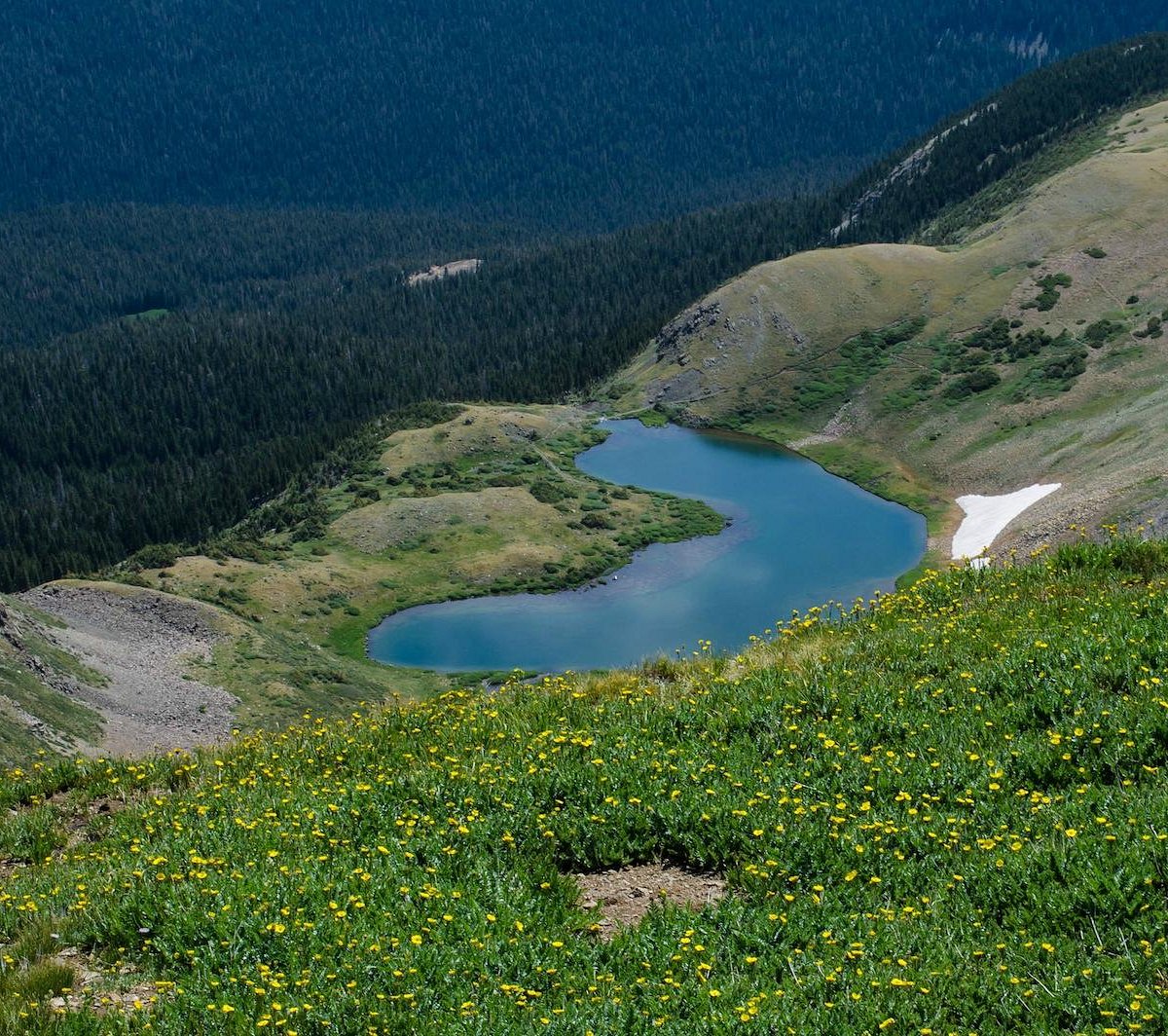
It’s weird to think that the tallest peak in New Mexico would be overshadowed by anything within the immediate vicinity. But with Southern Colorado’s Great Sand Dunes National Park some two hours to the north, and the cultural hotspot of Taos about 45 minutes to the south, that’s kind of what happens to Wheeler Peak. Don’t let this lack of regional recognition fool you, though: The 8.2-mile round-trip hike to this lofty summit in the Sangre de Cristo Mountains is one of the best in New Mexico and a true lesson in uphill slogging. Averaging about 800 vertical feet per mile, this trail takes hikers through lung-expanding evergreen forests and then up lung-crushing climbs above treeline. What you’ll remember other than the impressive summit panorama will be the near endless collection of switchbacks that seem to pinball you back and forth, side to side, and up-and-up through a seemingly infinite sea of scree. Patience—and quad-strength—are both virtues on this hike.
Appalachian Trail, Great Smoky Mountains, Tennessee
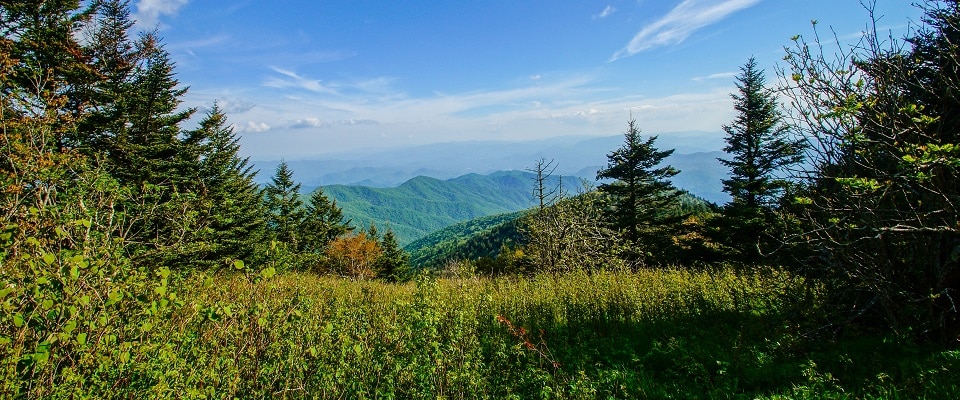
For Appalachian Trail thru-hikers, the 72 miles of the A.T. within the Smokies represent one of the most revered sections of the entire 2,200 mile route. For long-weekend backpackers, this stretch represents one of the most efficient and spectacular ways to get an intimate taste of America’s most visited national park. Whichever way you slice it, the Appalachian Trail in the Smokies is a spectacular hiking experience teeming with old-growth forests, incredible biodiversity, challenging climbs, sprawling mountain vistas, and a booming population of fearless and curious black bears. You can’t go wrong with any day hike section you choose along this route, but to really maximize the experience, a 4-5 day excursion that covers the entire 72 miles is your best bet. Overnight permits are required, so make sure you plan in advance.
Half Dome, Yosemite National Park

You don’t need climbing skill or equipment to scale Yosemite’s iconic Half Dome. Using steel cable handrails, hikers can ascend 400 feet up the backside of this granite monolith to reach its summit of 8,840 feet, with panoramic views of the Sierra Mountains in all directions. From the Yosemite Valley floor, Half Dome is a strenuous, 12- to 14-mile round-trip hike. Break up the journey by hiking 4.7 miles to Little Yosemite Valley to camp. Then, hike 3.5 miles to Half Dome and hit the cables early before they’re super crowded. Usually, the cables are accessible May through October, and permits are limited, so set a reminder to snag one as soon as they open on March 1. Don’t forget to pack plenty of water and bring sturdy gloves.
Rae Lakes Loop, Kings Canyon National Park

The 41.4-mile Rae Lakes Loop showcases some of the most stunning scenery in the High Sierra. Beginning at 5,041 feet in a forest of pines, cedars, and cottonwoods, the trek requires nearly 7,000 of climbing for hikers to visit emerald meadows and cobalt lakes surrounded by mammoth granite towers. While the hike includes the heart-pounding, 2.1-mile ascent of Glen Pass at 11,998 feet, grades are generally moderate and water is plentiful along the way. To avoid several intense climbs, do this hike clockwise. Due to high demand for permits, book as early as possible to March 1, when permits are released, and hike in May to avoid summer crowds.
Appalachian Trail, Georgia section hike
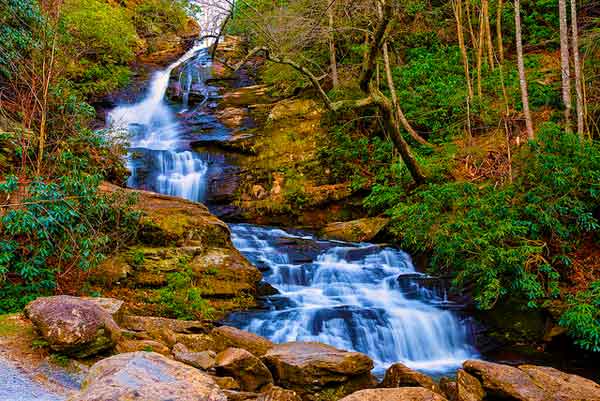
Northbound AT thru-hikers begin their 2,200-mile journey in Georgia, where the trail climbs high, exceeding 4,000 feet of elevation, to offer epic views from rock outcrops and sublime walks through emerald forests of rhododendron, mountain laurel and moss-covered boulders. Stretching 78.6 miles, the Georgia portion of the AT is not only beautiful but also challenging, with steep, rugged terrain that strains less-seasoned hikers and causes some to abandon their dreams of hiking to Maine. If a thru-hike is a little too ambitious for you, the Georgia AT includes many access points, so several day hikes and short trips are possible. If you begin at Neels Gap you can visit the Mountain Crossings gear store to mingle with thru-hikers and see the only point where the AT passes through a manmade structure. From there, make the steep climb to the summit of Blood Mountain to explore a unique stone trail shelter and enjoy a remarkable view of Appalachian ridges rolling to the horizon.
Florida National Scenic Trail
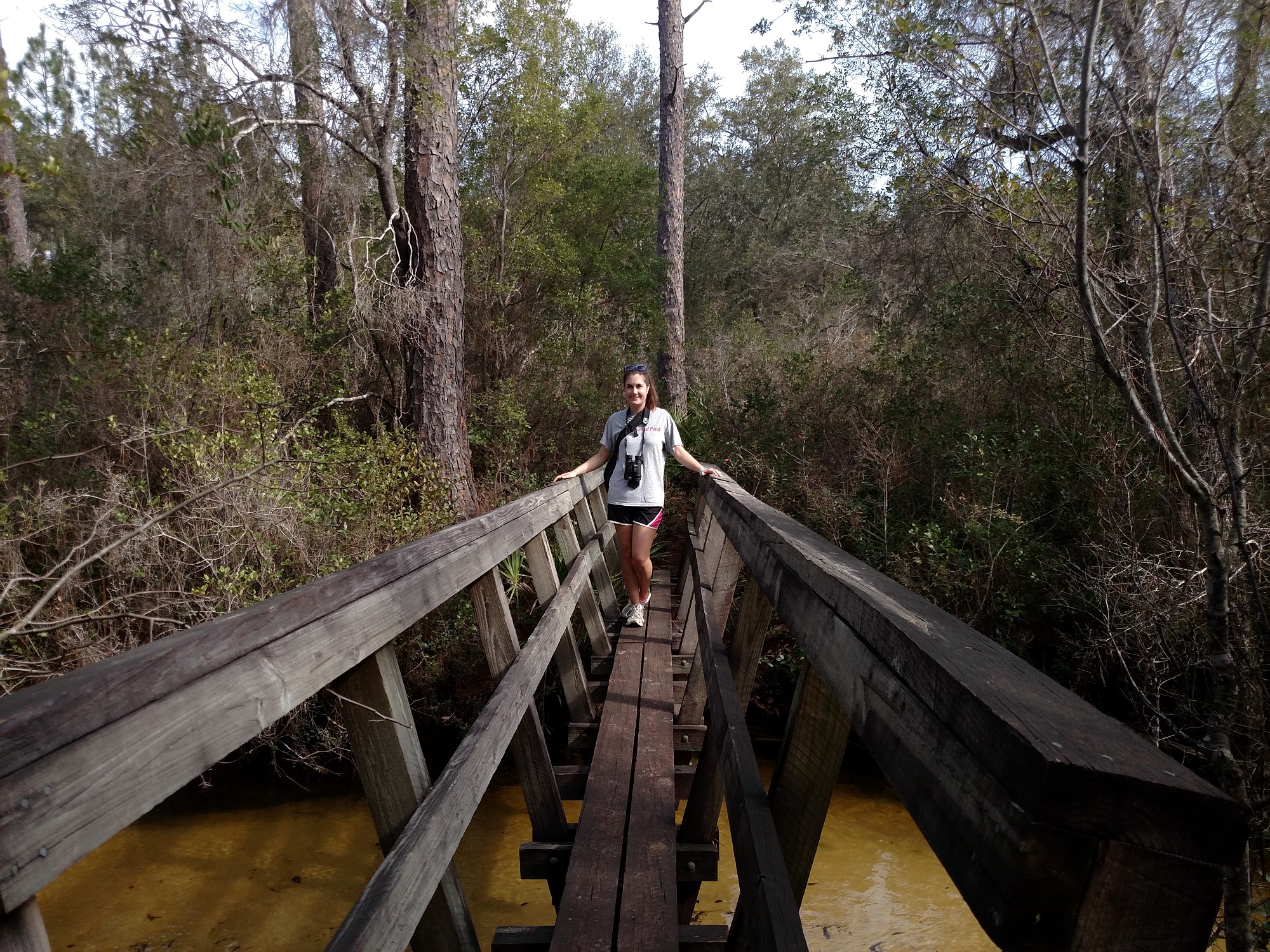
One of the most iconic trails in the Southeast, this 1,300-mile route stretches from the state’s Panhandle all the way to Big Cypress National Preserve at the southern end of the state. But you don’t have to tackle the whole thing to savor some of its highlights, from serene marshland to spectacular wildlife viewing. Take your pick from a number of excellent section hikes: A few recommended routes include the 11-mile stretch from Clearwater Lake to Alexander Springs, one of the trail’s oldest sections, and hikes around Hopkins Prairie, where you’re likely to see sandhill cranes and eagles. Campgrounds, both primitive and traditional, are interspersed along the way, so you can easily turn your day hike into an overnighter.
The Dipsea Trail, Marin County, California
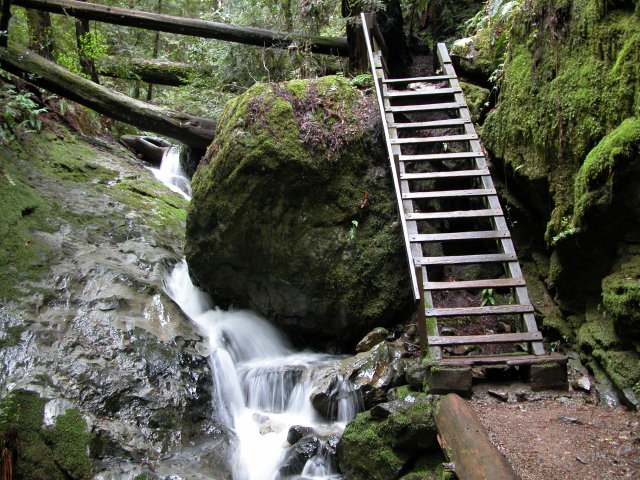
Don’t let this trail’s whimsical name fool you: The approximately 7-mile stretch is a doozy, with nearly 688 steps—in the first mile—and long uphill stretches for nearly 2,000 feet in total elevation gain. Even so, doing the Dipsea is a must for any Bay Area hiker or active-minded visitor, with forests that look like they’re lifted from a fairytale book, flowy single-track through majestic redwoods, and a finish at the Pacific Ocean. The trail is also home to one of the most infamous trail races in the country (and the oldest): The Dipsea Race, which has drawn hardy runners to battle its roots, ruts, and other ankle-twisting obstacles since 1905. Whether you run it or hike it, you must do it.
Skyline-to-the-Sea Trail, Santa Cruz, California
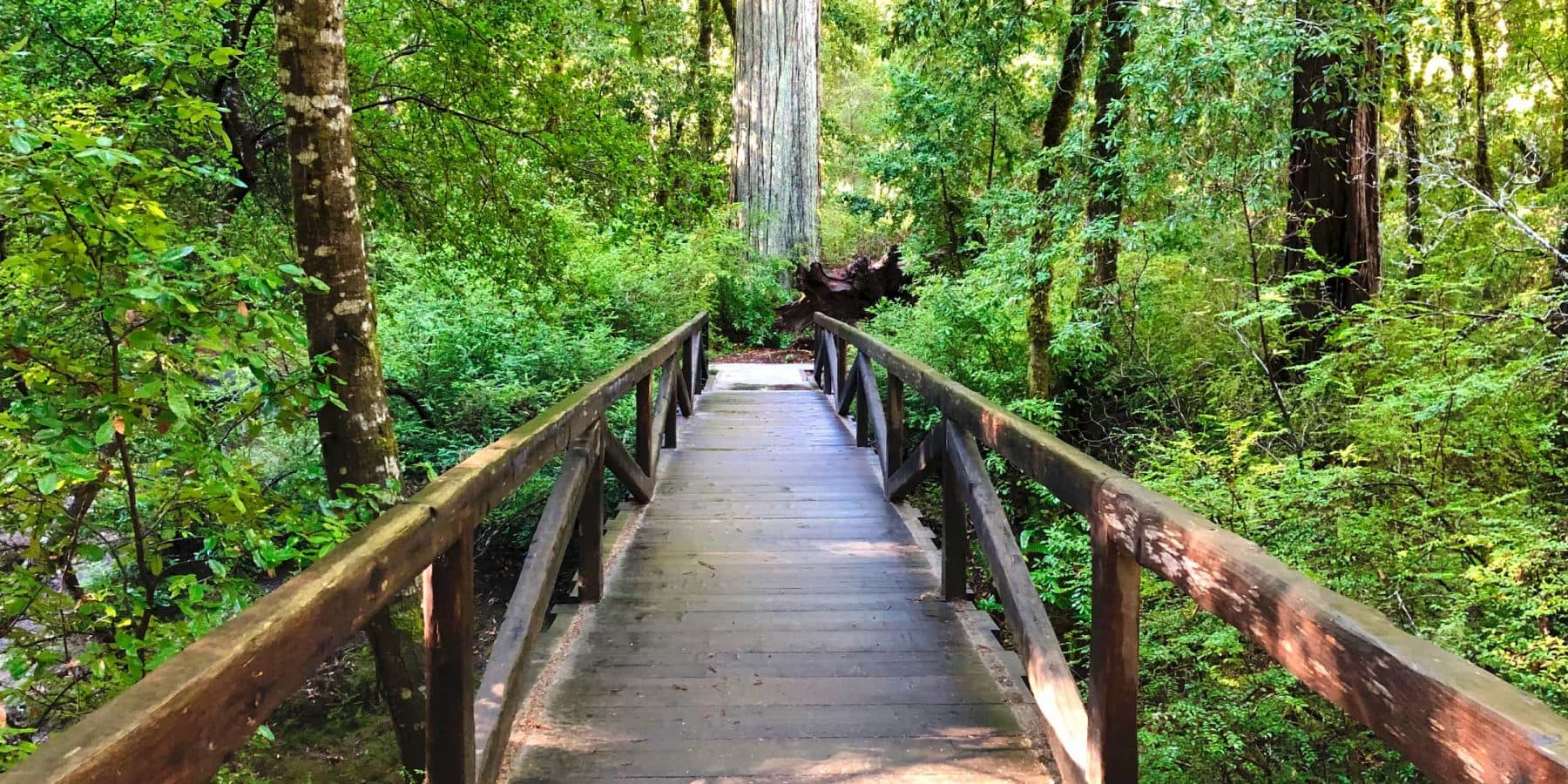
You can hike its sections separately, but to really experience the essence of this 31-mile trek, one of the best in the San Francisco Bay Area (if not all of California), it’s best to make a true adventure of it, with two overnighters on trailside campgrounds. Built over seven years by a local nonprofit, the trail treats hikers to roaring waterfalls and towering coastal redwoods and passes through two excellent state parks, Castle Rock and Big Basin, before culminating at the Pacific Ocean. Another big plus? With a start in the Santa Cruz Mountains, the trail is all net downhill. No surprise, then, that reservations fill up fast, so plan ahead and be patient—it’s well worth the effort.
Ammonoosuc Ravine Trail, New Hampshire
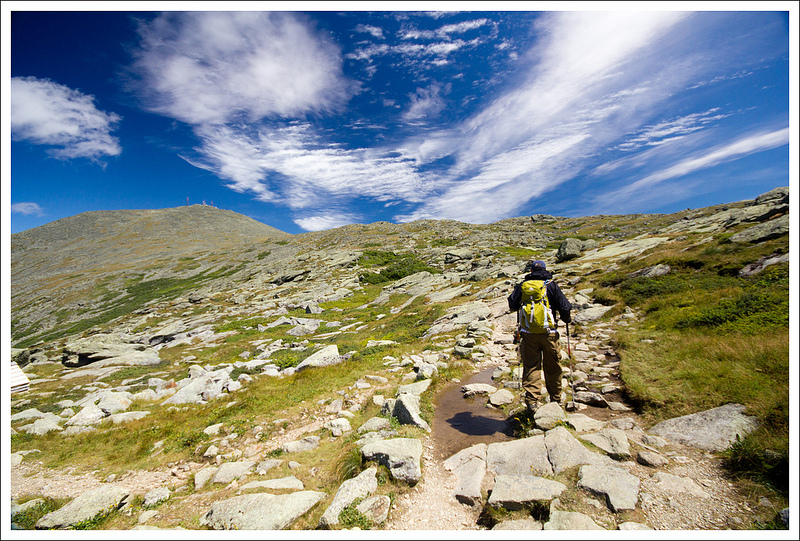
The iconic 6,288-foot Mount Washington in the White Mountains is a challenging and worthy summit, especially in the winter. While many are drawn to its eastern slopes to ski Tuckeman’s Ravine, a select few hike the Ammonoosuc Ravine Trail on the western side to the mountain’s peak. This demanding, approximately eight-mile round-trip route challenges hikers with steep and exposed sections, icy scrambles, and the threat of erratic weather and strong winds. But the stunning views, frozen waterfalls, and exhilaration of standing atop New England’s highest peak make the cold toes, burning lungs, and treacherous trek worth it.
Longs Peak, Colorado

Longs Peak’s 14,255-foot summit looms over Colorado’s northern Front Range, a mountainous beacon summoning the adventurous. A journey to the top of Longs is a truly epic undertaking—even for fit hikers. The standard ascent route via the Keyhole is a 15-mile outing with more than 5,500 feet of elevation gain and is usually done in a single 10-to-14-hour push. Most begin in the darkness around 2 am, catching the sunrise above treeline about five miles in at the famous boulder field. Crossing through the Keyhole dramatically changes the character of the hike from a steady, class-2 cruise to a wild, exposed, class-3 scramble along well-marked ledges. A tough push up a loose gully called "The Trough" grinds up to 14,000 feet, where there is still work to do. A steep scramble through the “Home Stretch” exits atop the surprisingly flat, broad summit block. After all that work, there’s still the challenge of getting down safely. Big, bold, and tough, Longs is one of the most amazing adventures in the Rocky Mountains.
Mount Frissell, Connecticut/Massachusetts
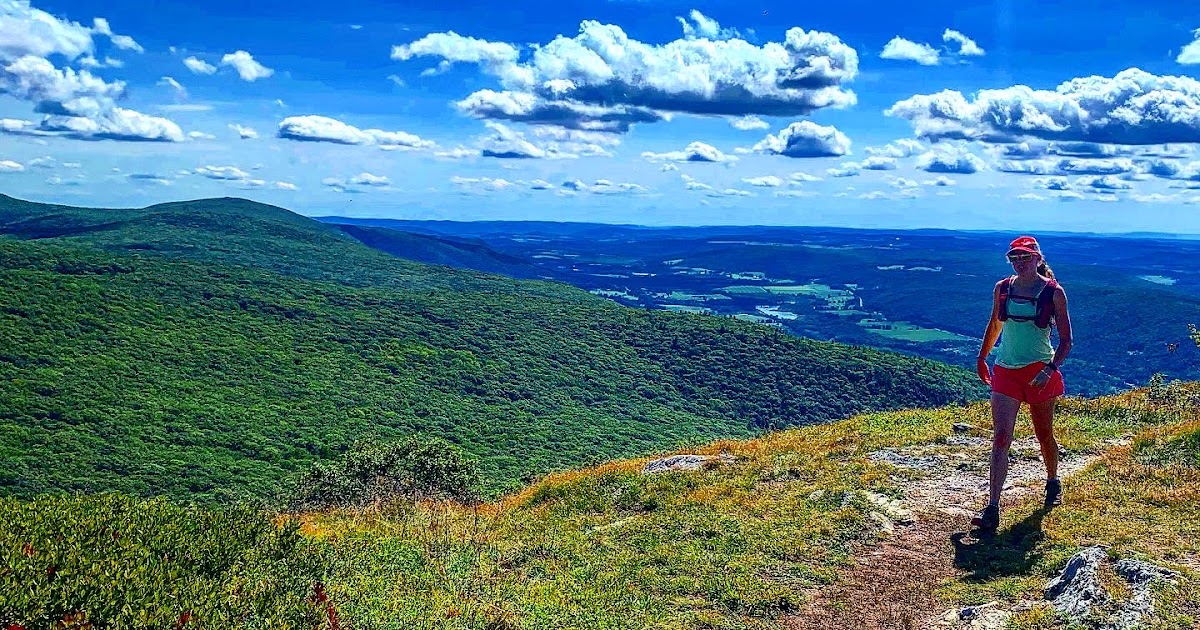
At 2,454 feet, Mount Frissell stands in the heart of southern New England and New York’s rolling Taconic Mountains. When the full force of the changing seasons paints the trees in hues of red, yellow, and orange, this hike makes a strong case as the most beautiful in the region. A modest, 1-mile trail start from Mount Riga Road in Massachusetts and gently climbs through scrub oak to the summit of 2,289-foot Round Mountain before continuing to the top of Mount Frissell. Unlike most hikes, however, you’ll get the best views beyond the summit. Passing into Connecticut, hikers come across the highest point in Connecticut at 2,380 feet on the south slopes of Mount Frissell—keep going! At 0.5 miles past the highpoint pin is the Connecticut-New York-Massachusetts tri-point marker, and roughly another mile past that are the panoramic views of rolling farmland and distant Appalachian mountains from 2,311-foot Brace Mountain. Return the way you came for excellent views of neighboring mountain domes to the north.
Peak One, Colorado

At 12,933 feet, Peak One is more than 1,400 feet lower than Colorado’s highest peak, but what it lacks in elevation it makes up for in unmatched views. Access is easy, with the trailhead located right off highway I-70. Hikers climb past the ruins of an old mining town before breaking treeline. A class-2+ ridgewalk reveals the depth and beauty of Colorado’s high country. Dillon Reservoir sits at the foot of the peak to the east, where the mighty Front Range 14ers stand in the distance. The northern views are dominated by the mysterious and challenging Gore Range, while far-off Sawatch Range mountains decorate the western horizon. A fun, brief scramble ascends the summit. Turn around at that point for an 8-mile out-and-back with more than 3,000 feet of elevation gain—or keep traversing along the Tenmile Range to Tenmile Mountain and beyond. Hiking from Peak One to Peak Ten is one of Colorado’s big point-to-point testpiece adventures.
Humphreys Peak, Arizona

The highest point in Arizona, 12,633-foot Humphreys Peak is an ambitious peak to bag, with an impressive history to ponder as you conquer it. Geologists speculate this strato-volcano once stood much higher until it experienced a Mount St. Helens-style eruption that resulted in its trademark bowl and diminished height. The Arizona Snowbowl ski area is set on the flanks of the peaks San Francisco Peaks, of which Humphreys is the tallest. A hike to the top travels through pine forests and out of treeline along a well-maintained trail through chunky volcanic rock. Admire the power that shook the land as you take the final steps to the airy summit, where views span out into the lowlands that transform into far-off deserts and canyons. It’s about nine miles round-trip, with 3,000 feet of elevation from the standard route on the Humphreys Peak Trail.
Greenstone Ridge Trail, Isle Royale National Park

Located on an island in Lake Superior that’s 45 miles long and just nine miles wide, this national park is so remote you’ll have to take a ferry or seaplane to access it. But once you do, you’ll have your pick of 165 miles of hiking trails that cover spectacular terrain, including the ruins of an old copper mine and a lighthouse that dates back to the late 1800s. Many hikers flock to the Greenstone Ridge Trail, which runs along the spine of the island, but the Minong Trail is a 52-mile trek that’s slightly harder, but with far fewer people and just as stunning views, wildflowers, and up-and-close wildlife viewing. Choose from several out-and-back routes, or make it a point-to-point overnight trip (there are 36 first-come, first-serve campgrounds) and you just might catch a glimpse of the Northern Lights.


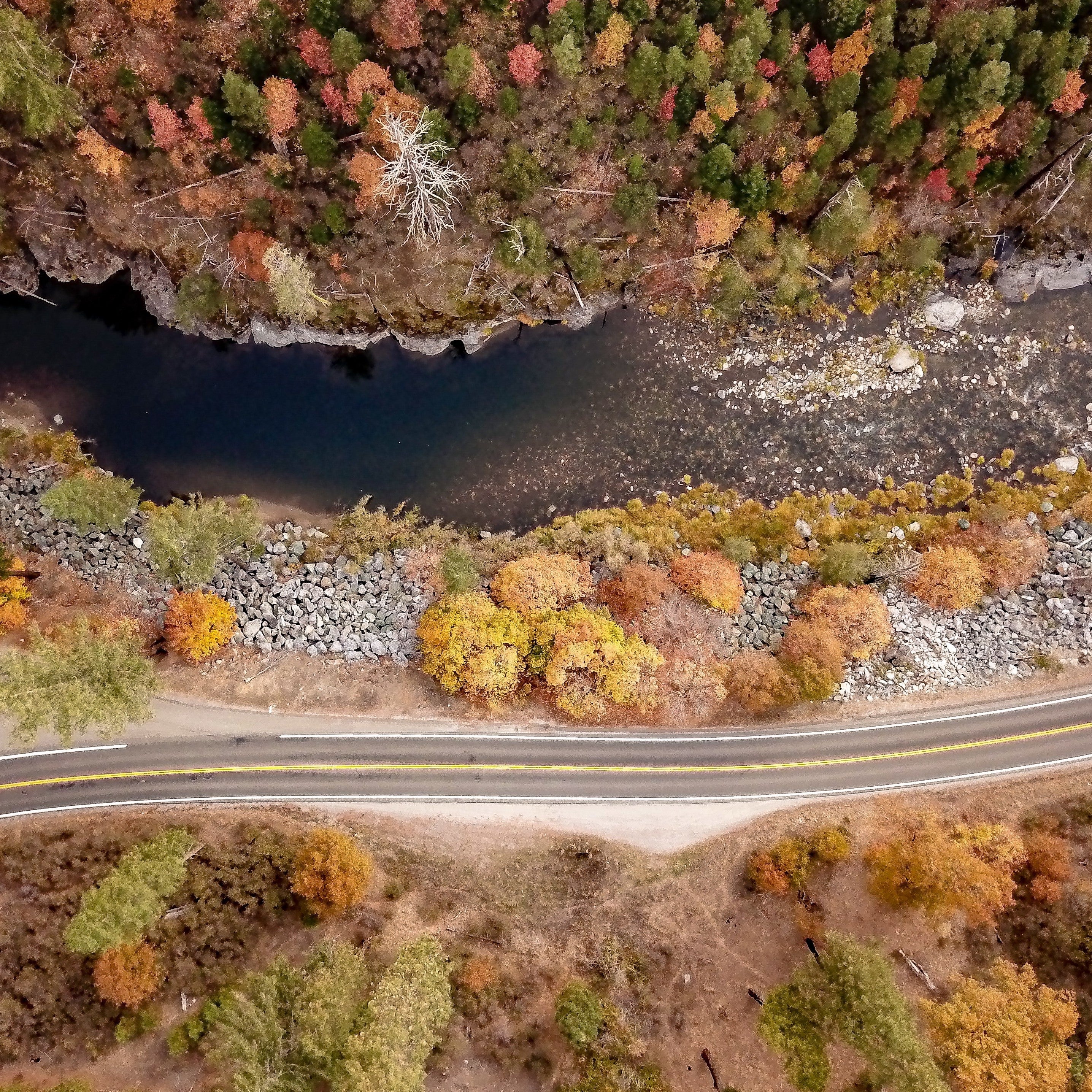




Leave a comment
This site is protected by hCaptcha and the hCaptcha Privacy Policy and Terms of Service apply.